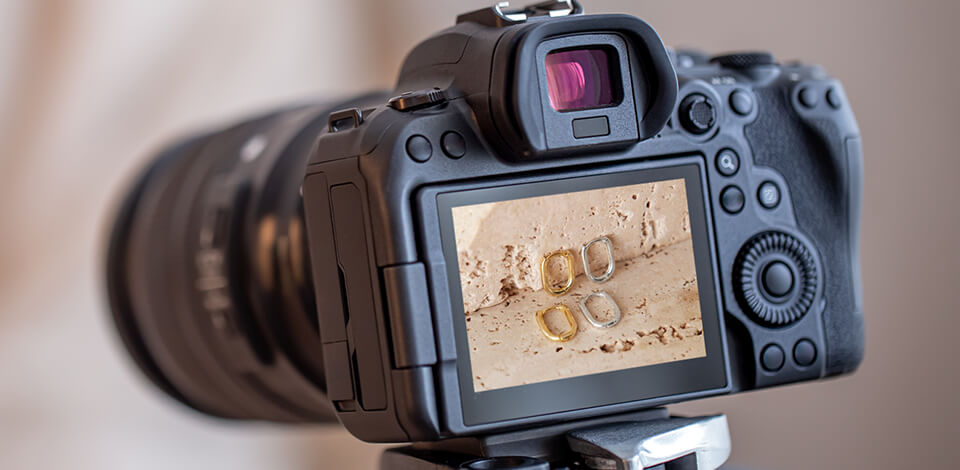
If you are in search of the jewelry photography camera, you may feel confused as the majority of camera models and lenses are designed for portraits and landscapes. No matter whether you are an experienced shooter or an amateur, you need a high-quality camera that can produce sharp images with minimal noise. Besides, the gear should be compact and ergonomic.
Compared to other genres of photography, where on equipment beginning photographers spend between $5,000 - $10,000, jewelry photography requires less expenses.
If you are planning to shoot ecommerce photos of necklaces, rings, watches or earrings for a large magazine, you need a DSLR body and a pro macro lens for $2000-3000. To get photos of products for websites, use a mirrorless or DSLR middle class camera body that costs $900 or even less.

Type: DSLR | Sensor: 30.4 MP full-frame CMOS sensor | Video: 4K, Full HD, and HD | Screen: 3.2-inch LCD Screen with Approx. 1620K dots | Weight: 1.76 lbs
Canon EOS 5D Mark IV is a cutting-edge jewelry photography camera that can meet the needs of any photographer. It has a range of advanced features, but its greatest advantage is a 30MP sensor with a resolution of 6,720 x 4,480 pixels. Fitted with great autofocus, the camera produces sharp and colorful images. With ISO up to 1,600, your pictures will have a minimal amount of noise.
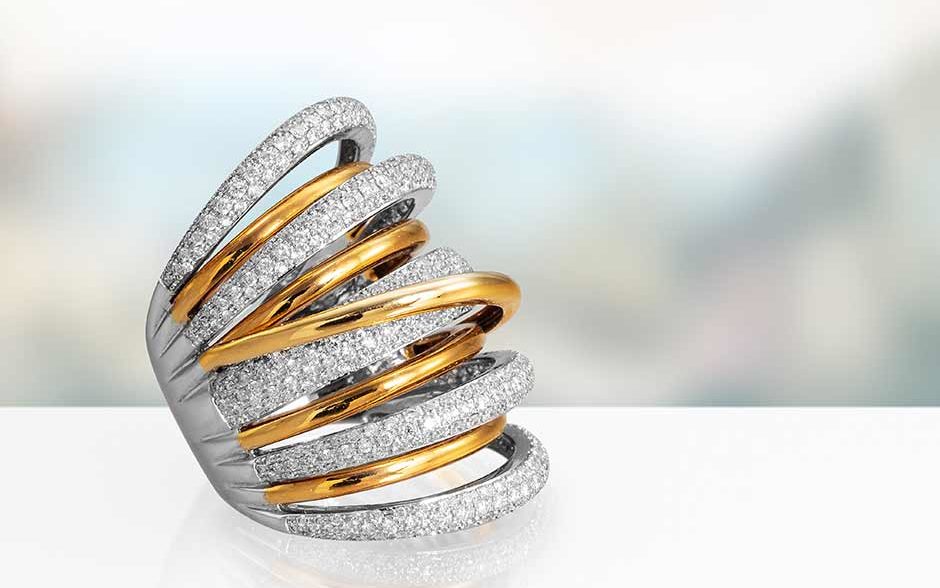
Photo by Canon EOS 5D
By using such ISO, you can decrease the level of noise considerably, which results in a less time-consuming editing process. When paired with powerful Canon lenses, it amazes with very crisp results. Besides, like other Canon cameras this model is designed with compactness in mind.

Type: Mirrorless | Sensor: Full Frame (35mm) | Video: 4K UHD Video performance at its best | Screen: 3.2-inch | Weight: 1 lbs
One of the standout features of Nikon Z 6II is its high-quality sensor, which allows you to capture clear and detailed images even when shooting at higher ISOs. This is crucial for jewelry camera, as you want to showcase every little detail of those beautiful gems.
Additionally, the camera's image stabilization system is fantastic, enabling you to shoot handheld in low light conditions and still achieve sharp and crisp photos without the need for a tripod.
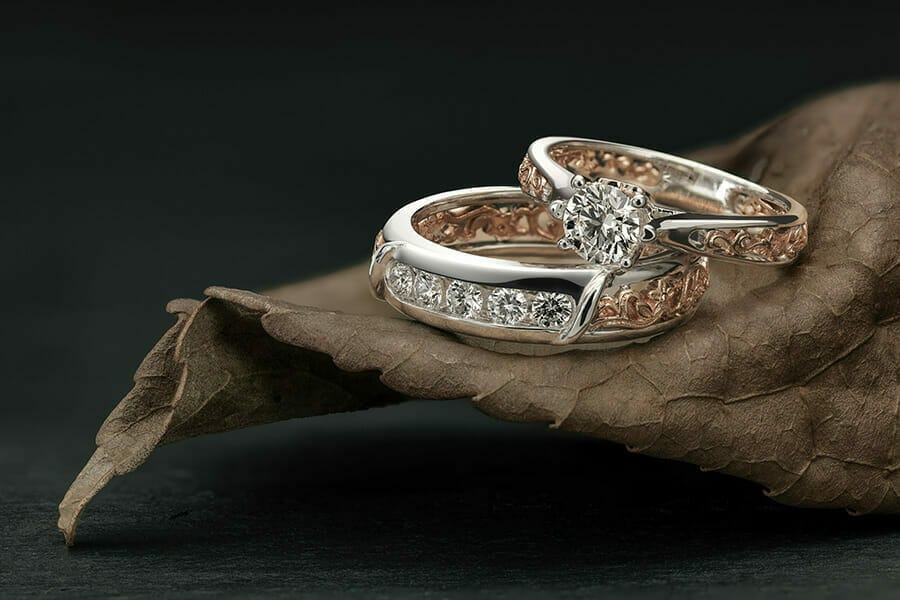
Photo by Nikon Z 6II
In terms of overall performance, the Z 6II is a solid all-around performer. This Nikon photography camera offers a wide range of useful features and comes at a reasonable price point.
The body itself is well-made and refined, with comfortable ergonomics that make it a joy to use. It's also lightweight and compact, perfect for on-the-go shooting, also with a Nikon lens.
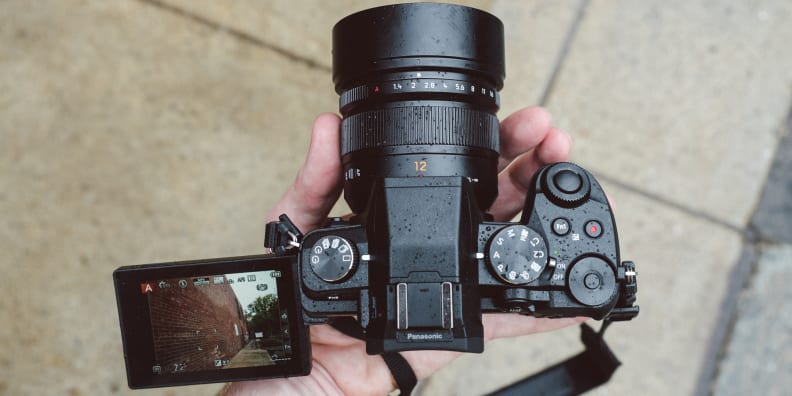
Type: DSLM (Digital Single Lens Mirrorless) | Sensor: APS-C sensor | Video: 4K videos | Screen: High-resolution LCD screen | Weight: 1 lbs
Panasonic LUMIX G85 camera for jewelry photography has a high dynamic range, which is fantastic for capturing all the intricate details of diamonds and gems. This means you can expect sharp, clear images with excellent color reproduction.
One of the standout features is the five-axis image stabilization. It does a great job of reducing any shake or blur, which is crucial when you're working with small, delicate jewelry pieces. This stabilization system is even effective with older lenses that don't have built-in stabilization.

Photo by Panasonic LUMIX G85
Another advantage of this camera for photographing jewelry is the touch-controlled display. It's intuitive and easy to use, allowing you to navigate through menus and adjust settings with a simple touch. This makes it suitable for photographers of all experience levels.
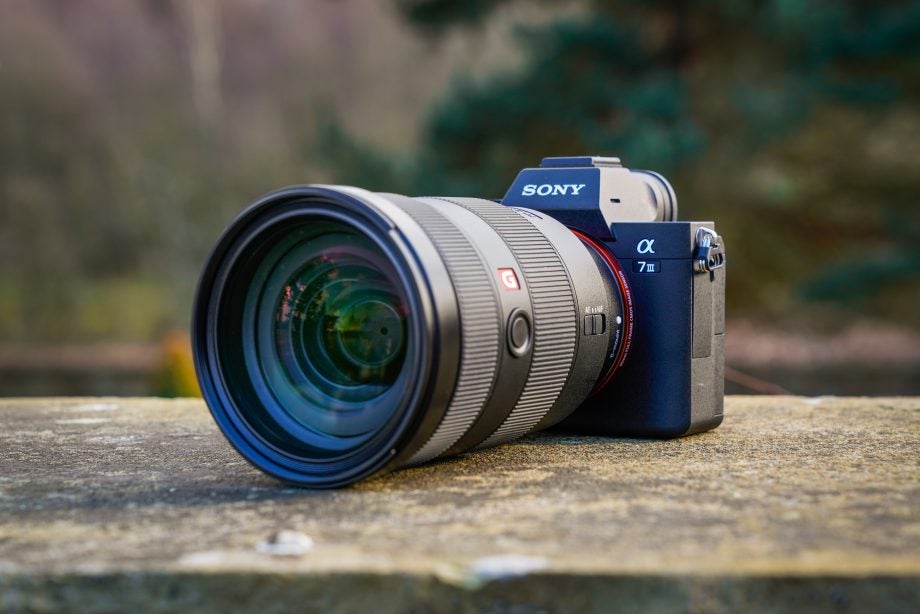
Type: Mirrorless | Sensor: 24.2MP BSI full frame sensor | Video: 4K, Full HD, and HD | Screen: 3.0-inch 922k-dot tilting touchscreen LCD | Weight: 1.44 lbs
Sony a7 III is a well-built and highly functional jewelry photography camera with a 24MP 35mm image sensor that can capture 10 pictures per second. Besides, this mirrorless camera has an excellent hybrid AF with 693 phase-detection that covers almost the entire frame.
There is also a sensor-shift picture stabilizer that provides a longer exposure time without producing a blurring effect so it can also be called the best camera for photography of eCommerce items as well.

Photo by Sony a7 III
This Sony camera is capable of 4K video recording. Although it is quite small, the developer added a convenient handle so that you can carry it in one hand. Photographers also like its excellent VF and an adjustable touchscreen with a resolution of 921,000 dots.
Such specifications allow this camera to compete even with the most sophisticated models. It is undoubtedly a perfect option for diamond photography experts.

Type: Mirrorless | Sensor: 24MP APS-C sensor | Video: 4K at up to 60fps, Full HD at up to 120fps | Screen: LCD monitor that can be tilted | Weight: 0.94 lbs
Canon EOS R10 is a fantastic choice for jewelry photography because it boasts a high-resolution sensor that works seamlessly with a macro lens.
This combination allows you to capture intricate details that may not be visible to the naked eye. This camera for jewelry photography also supports tethered shooting, which is a huge plus.

Photo by Canon EOS R10
In terms of usability, the EOS R10 is a breeze to operate. It features physical buttons, switches, and dials that make it easy to adjust settings on the go and take various shots from wedding ring photographs to ads of precious items.
This jewelry camera encourages manual control, with a dedicated ISO button, AF/MF mode switch, autofocus joystick, and an index finger dial. Additionally, it has a built-in flash and a hot shoe for external microphones, giving you versatility in your photography projects.

Type: Bridge | Sensor: 16MP APS-C sensor | Video: 4K, Full HD, and HD | Screen: 1/2.3-inch | Weight: 2.1 lbs
The COOLPIX P950 boasts an impressive 83x optical zoom, allowing you to capture stunning close-ups and distant shots. This is incredibly useful when shooting jewelry, as you can capture intricate details or showcase the entire piece. The Dual Detect Optical VR helps keep your images sharp, even when shooting handheld at full zoom.
This camera for jewelry photography also features a 2.36-million-dot electronic viewfinder, which is great for stability, especially when shooting handheld. The 3.2-inch LCD monitor is decently sized and easy to use.
There are various scene modes to choose from, and you can even customize settings with COOLPIX Picture Controls, giving your photos a unique artistic touch.

Photo by Nikon COOLPIX P950
Now, let's discuss some disadvantages. One issue you may encounter is the autofocus. The COOLPIX P950 can struggle to find focus in fast-moving scenes, which can be frustrating when trying to capture objects like birds in flight or cars on a highway. However, this can be fixed with some software adjustments.
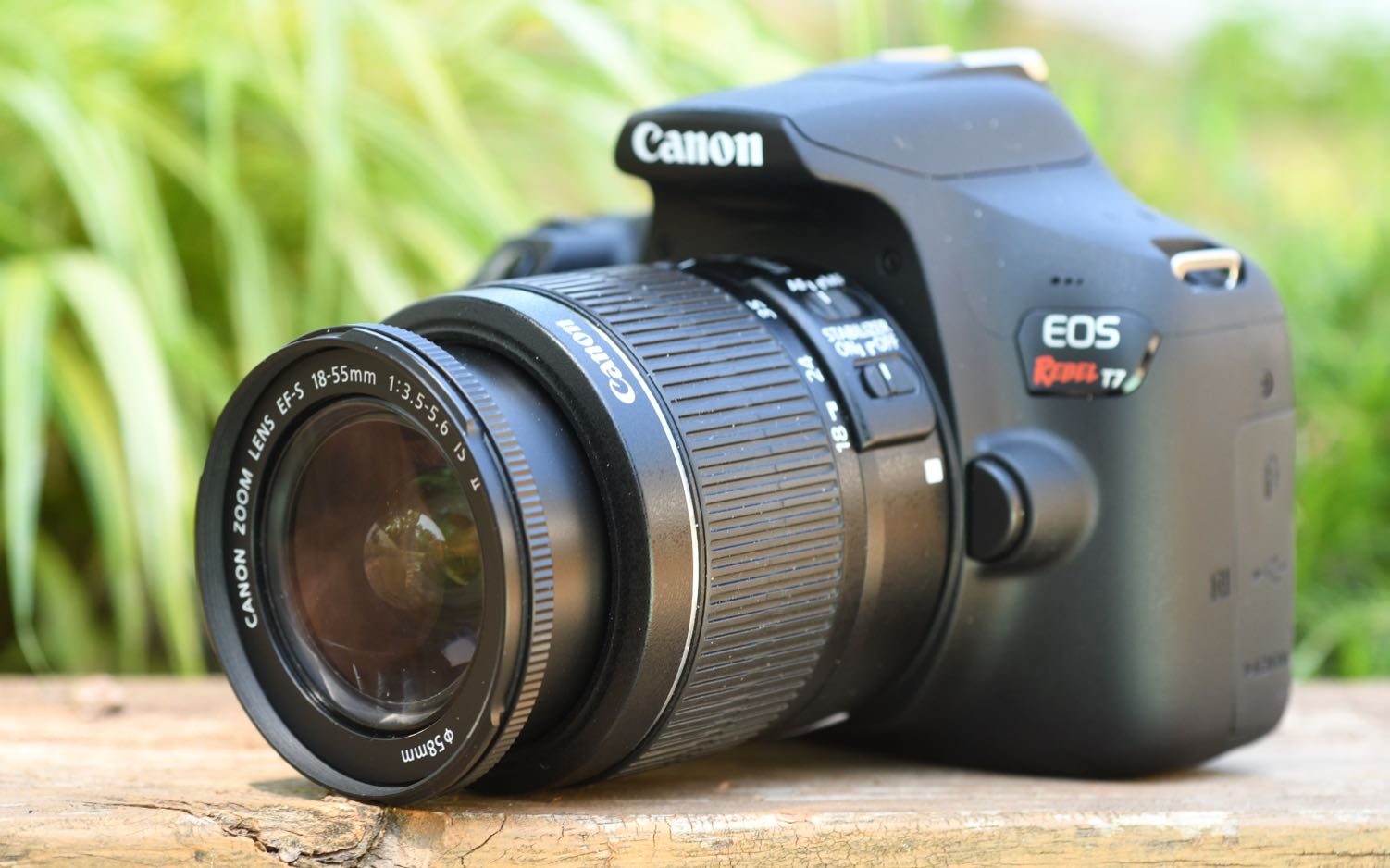
Type: Mirrorless | Sensor: 24.1 MP CMOS sensor | Video: 1080 Full HD video | Screen: 3 inch | Weight: 1.04 lbs
Canon EOS Rebel T7 is a splendid high-resolution cheap Canon camera appropriate for jewelry shooting and in-built 9-Point AF system and AI Servo AF. It features mutually changeable optics from Fuji and a 24-megapixel matrix containing no smoothing filter, which secures low noise at high sensitivity and perfect image precision.

Photo by Canon EOS Rebel T7
This camera for photographing jewelry is vertically and horizontally sensitive. Such AF easily draws attention to jewelry photography props.
Moreover, you can control the photography process via VF or applying the LCD. Considering its cost, it is one of the best models, which has a wonderful performance quality and customizable settings for jewelry shooting.
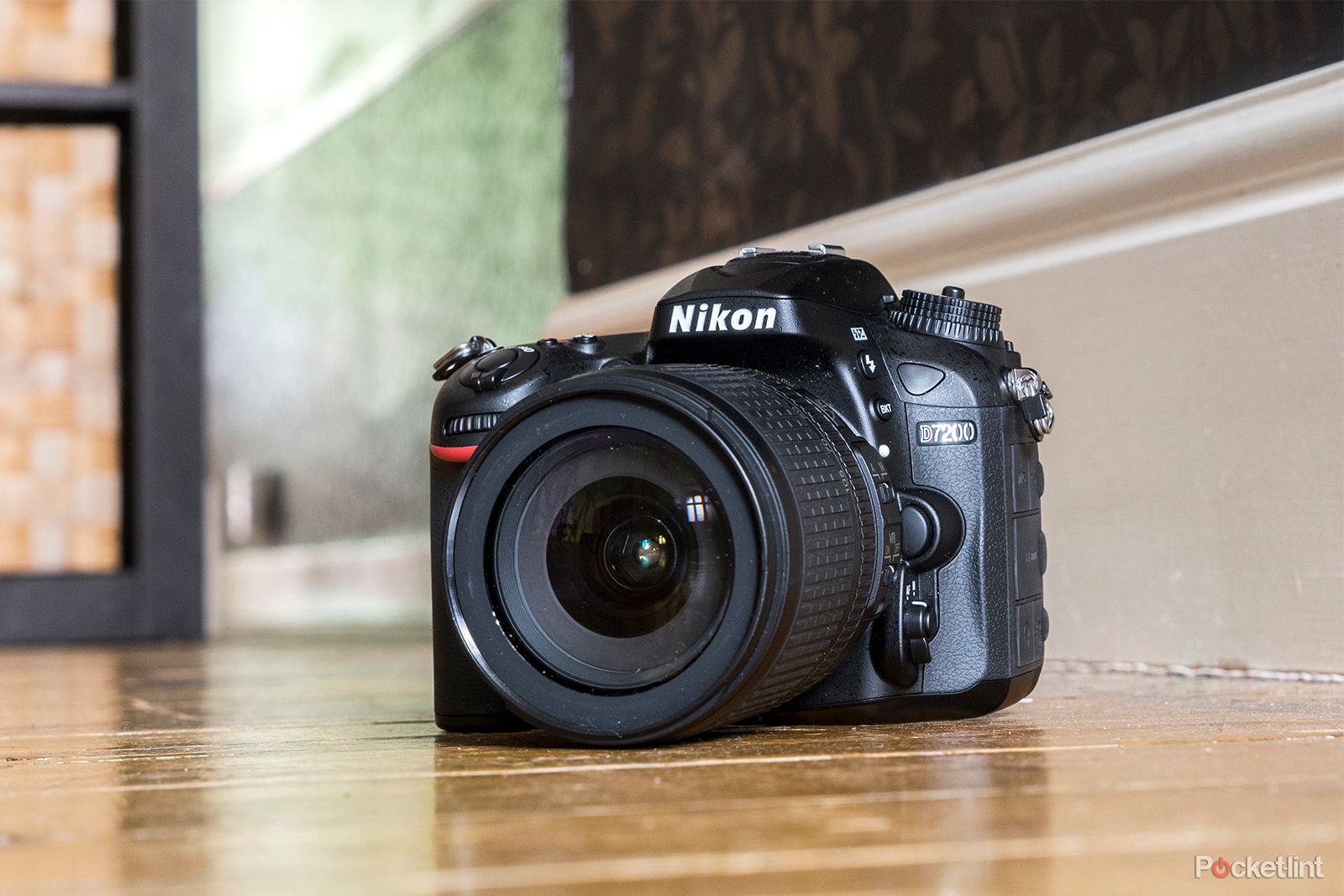
Type: DSLR | Sensor: 24.2 MP DX-format CMOS image sensor | Video: Full HD 1080p at 60 fps | Screen: 3.2 inch 1,229k-Dot LCD Monitor | Weight: 1.49 lbs
It’s one of the best cameras for photographing jewelry. Of course, you can buy an earlier model D7100, which has similar characteristics, but the D7200 surpasses it in noise reduction, as well as the presence of Wi-Fi systems on board.
In fact, this is an excellent APS-C camera with large ISO expansion capabilities ranging from 100 to 25600, as well as 102400 b/w mode. Thanks to this DSLR, you get high-quality color reproduction, sharpness and exposure, especially at lower ISO.
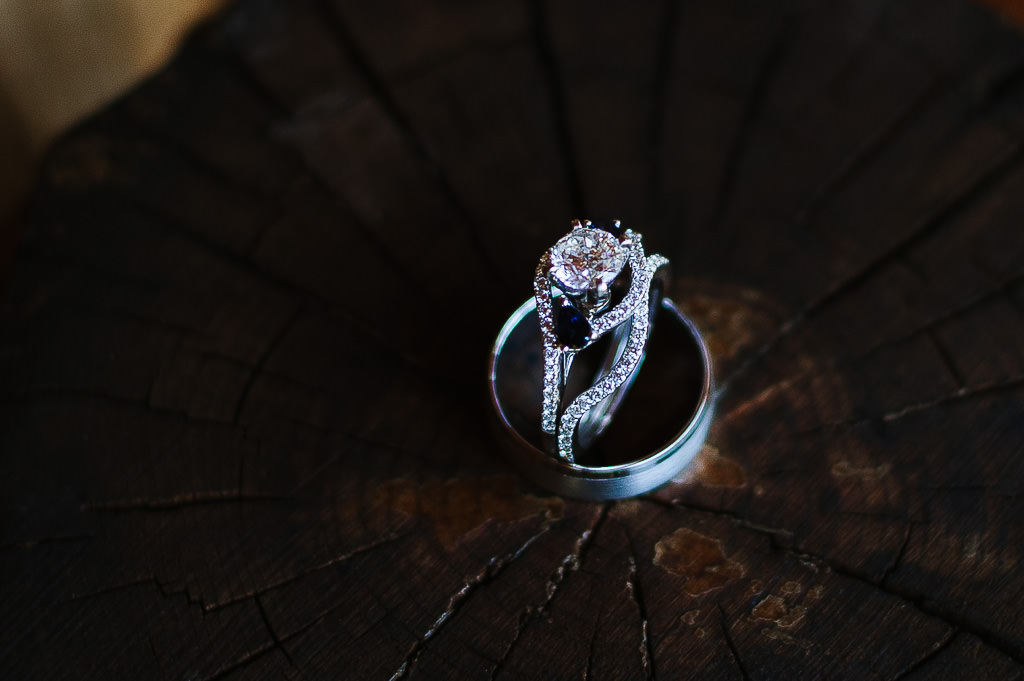
Photo by Nikon D7200
A powerful Expeed 4 processor and a long-lasting battery make Nikon D7200 so popular among photographers. Besides, the camera has a sophisticated and innovative ‘SnapBridge’ feature that makes this model an ideal jewelry camera. By using this option, you can easily export pictures directly from the camera to various mobile devices.

Before purchasing a camera for jewelry photography, you need to define the most important specifications the device should have, as this genre is very different from others.
Megapixels - at least 10MP. The first aspect you need to consider when learning how to photograph jewelry is the number of megapixels the camera can produce. If you need to take jewelry photos for online ads, you will be satisfied with a 10MP jewelry photography camera.
However, if you need pictures for large printed ads, you should look for a more advanced model. Define the size of your desired banner to know how many megapixels will be sufficient. The bigger this number is, the more detailed and vivid picture you will get. My recommendation is a 20-30MP camera.
Type of camera. Such type as point and shoot cameras can produce practically the same number of megapixels as a DSLR camera but the latter allows adjusting such settings as shutter speed and aperture to get a perfect picture of an object.
For taking 1000px jewelry photos, opt for a DSLR camera because it allows shooting at a close distance. Points and shoot cameras can’t produce large and crisp photos of small jewels.
Such jewelry photography cameras work well for photographing larger items like necklaces as you don’t need to take close-up pictures in this case. It is also a great idea to have several lenses to easily change shooting angles.
Connectivity options. While selecting the best camera for jewelry photography, you should make certain that the model you like offers a wireless connection type, namely Bluetooth, Wi-Fi, or the combo. Thus, you can export images or videos to a smartphone or tablet without using cables.
The majority of manufacturers develop free applications for their cameras allowing photographers to control the shooting gear remotely. By taking advantage of the live view mode, you can view the captured pictures on your smartphone. This feature is especially helpful when you’ve set the camera on a tripod to take a family portrait.
When it comes to jewelry photography, the camera itself is crucial, but having the right jewelry photography kit can make a significant difference in the quality of your photos.
Macro lens is essential for capturing close-up shots of jewelry. It allows you to focus on small objects and bring out their fine details. Be sure to check if the camera you're considering has a good macro lens option.
Another must-have to use with the best camera for photographing jewelry is a tripod. It provides stability and eliminates vibrations, resulting in sharp and focused images. Look for a tripod with adjustable legs or center columns for precise positioning.
Also look for flash diffusers. They soften direct sunlight and minimize harsh shadows, which can greatly enhance the appearance of jewelry. They also help correct the color temperature and reduce glare on shiny surfaces.
When choosing props, use them sparingly to avoid distracting the viewer from the jewelry itself. Too many jewelry photography props can create inconsistencies between photos, affecting the overall aesthetic.
Lastly, consider using a grey card to ensure correct exposure. It helps in achieving accurate colors and tones in your photos. If you don't have a grey card, you can improvise by using a piece of gray, non-reflective paper.
You can easily get rid of reflection by using a reflector board or a fill flash, which are designed to throw the light back onto the gemstones illuminating all dark areas. A polarizer serves for minimizing glare and reflections and allows getting brighter and saturated colors.
To capture beautiful details of precious items, you need to use macro lenses. My recommendation is to choose a lens with a maximum 1:1 magnification and a minimum focal length of 60mm.
Using artificial light for shooting is advantageous as you can adjust the intensity of light for a balanced outcome. However, you should avoid employing several light sources as different color temperatures will have a negative impact on the quality of your picture. I also advise using light boxes for jewelry photography.
When it comes to backgrounds, neutral colors like white, gray, or black are often preferred to ensure the focus remains on the jewelry itself. A clean and simple background allows the jewelry to stand out and eliminates distractions. Props like jewelry displays, reflective surfaces, or fabric textures can be used sparingly to add visual interest and enhance the overall composition.
Firstly, RAW files contain a higher level of detail and dynamic range, allowing for greater flexibility in post-processing and preserving fine details in jewelry. Secondly, RAW files retain more color information, enabling accurate color correction and adjustment during editing. Lastly, RAW format provides a non-destructive workflow, as adjustments made to RAW files do not affect the original image data, allowing for more precise editing and experimentation.